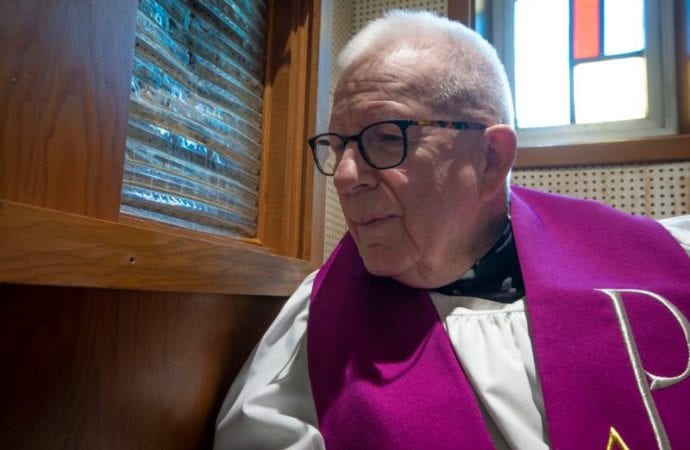As California is currently embroiled in a battle over whether to punish priests for not breaking the seal of confession in cases when child abuse is revealed, the Vatican has issued a statement reaffirming the “inviolability” of the confidentiality of confession, and saying political pressure in this regard is a breach of religious liberty.
“Every political or legislative initiative intended to ‘force’ the inviolability of the sacramental seal would constitute an unacceptable offense against the libertas Ecclesiae (freedom of the Church), which does not receive its legitimacy from individual states, but from God,” the statement issued by Cardinal Mauro Piacenza, was approved by Pope Francis June 21 and published July 1.
This type of pressure “would also constitute a violation of religious freedom, legally fundamental to every other type of freedom, including the freedom of conscience of individual citizens, both penitents and confessors,” the statement read.
Piacenza’s statement comes as the U.S. Church is facing one of the most serious potential violations of religious freedom in its history in California, where Senate Bill 360 would compel priests to disclose information about child sexual abuse that they learn when they are hearing the confession of another priest or a co-worker.
The bill passed the California senate by a 30-2 vote in May and is expected to be considered by the State Assembly in September.
Piacenza heads the Apostolic Penitentiary, a Vatican court dealing with matters of conscience.
In his statement, Piacenza said that if a penitent reveals that they have been the victim of “the evil of others,” the confessor’s job is to inform the penitent of their rights and the concrete juridical instruments available to them to denounce the incident in both the civil and ecclesial spheres in order to achieve justice.
For cases in which sins are confessed that constitute offenses, “it is never permissible to place upon the penitent, as a condition for absolution, the obligation of constituting himself with civil justice.”
Defense of the sacramental seal “will never constitute a form of connivance with evil,” he said, calling it “the only true antidote to the evil which threatens man and the whole world.”
He said there is currently a “negative prejudice” against the Catholic Church, due in large part to tensions among ecclesial hierarchy, as well as current abuse scandals.
Piacenza said this prejudice is “oblivious to the true nature of the Church,” often leading to “the unjustifiable claim that the Church herself, in certain matters, must conform its own legal order to the civil systems of the states in which it finds itself living.”
Because of this, the cardinal said he wanted to reaffirm concepts which seem increasingly “strange” to public opinion, including the seal of confession and other points involving conscience such as “the inherent confidentiality” of the non-sacramental internal forum, meaning a person’s conscience before God; professional secrecy and the criteria and limits of every other communication.
Calling the sacramental seal “indispensable,” Piacenza stressed that “no human power has jurisdiction, nor can claim it,” on matters regarding the seal.
“The inviolable secrecy of confession comes directly from revealed divine law and is rooted in the very nature of the sacrament, to the point of not admitting any exception in the ecclesial context, nor, even less, in the civil sphere,” he said.
Because the sacraments are believed to be a true meeting point between believers and Christ, the defense of the seal on the part of the confessor, “if necessary usque ad sanguinis effusionem (using the shedding of blood),” is not only an act of “dutiful loyalty” to the penitent, but it is also “a necessary testimony - a martyrdom” made for both Christ and the Church, he said.
Referring to canon law and quoting the Catechism of the Catholic Church, Piacenza stressed that the confessor must maintain “absolute secrecy” about the sins of the penitent, and he is “never allowed, for any reason whatsoever, to betray the penitent with words or in any other way.”
Piacenza said this also goes for cases in which the confessor is unable to absolve the sins of the penitent. Even if the confession is invalid or absolution is not given for some other reason, “the seal must be maintained.”
Neither does the penitent have the power to compel the priest to disclose the contents of what was said during confession, Piacenza said, stressing that the obligation of secrecy “comes directly from God.”
Archbishop Gomez and his brother bishops in California are urging Catholics to oppose SB 360, which would revoke the “Seal of Confession” for priests and tens of thousands of Catholics in the State. For parish resources, prayers and to take action, visit KeepTheSeal.com.

